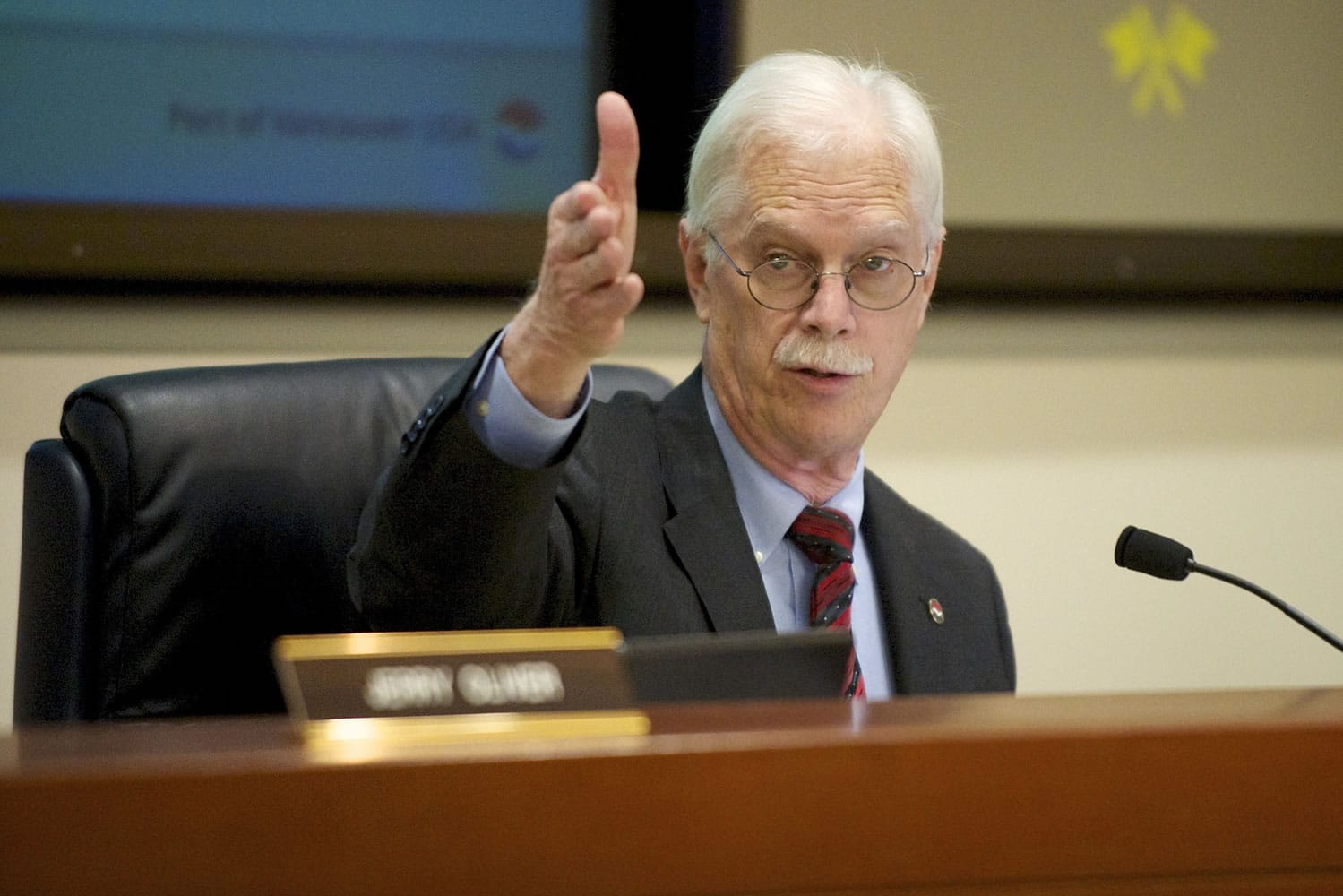A Clark County Superior Court judge heard arguments Friday over whether to allow to move forward a petition to recall from office Port of Vancouver Commissioner Brian Wolfe.
Judge Robert Lewis said he would decide the matter by Wednesday. The petition, filed by Vancouver resident Christopher Clifford, levels several allegations. They include that Wolfe knowingly violated the state’s public meetings law in discussing in closed-door executive sessions a lease for what would be the nation’s largest rail-to-marine oil transfer terminal.
Clifford, representing himself in the case, made several oral arguments to the judge, including that the state’s Open Public Meetings Act is to be “liberally construed” to the point of not allowing elected officials to “look for excuses to keep information from the public.”
Wolfe’s attorney, David Markowitz of the Portland law firm Markowitz Herbold, countered on several fronts, including that there’s “not a shred of evidence” that commissioners went outside the law’s boundaries. The port’s attorney was present during the meetings, Markowitz said, to advise commissioners about the law.
Lewis peppered both parties with questions.
Addressing Clifford, the judge asked: In executive session, are commissioners only allowed to ask what the lease price should be? In considering the price, why couldn’t they also talk about requiring companies to install extra infrastructure to prevent train accidents?
“This is not a fluctuating lease,” Clifford replied. “Setting a price is a pretty narrow thing.”
At one point, Lewis turned his attention to Markowitz. The judge brought up the port’s decision to take a re-vote on the oil terminal lease, in 2013, out of concerns about how it handled the first vote.
Doesn’t the port’s decision to take a re-vote on the oil terminal lease represent circumstantial evidence that it ran afoul of the open meetings law, the judge asked. Markowitz replied, in part, that the re-vote was held to correct a technical error, committed by Commissioner Jerry Oliver, that did not involve Wolfe.
Clifford filed two recall petitions on May 19: one against Wolfe, the other against Oliver. The petition against Oliver has yet to be heard in court. The recall petitions are based, in part, on depositions taken of Wolfe and Oliver in a separate lawsuit that accuses the port of illegally excluding the public from multiple meetings about a proposed lease with Tesoro Corp., a petroleum refiner, and Savage Cos., a transportation company.
The recall process is complex. A Superior Court judge’s role in it is to decide two things: whether the charges made by a recall petition are legally and factually sufficient, and whether the recall ballot synopsis — submitted to the court by the county prosecutor — is adequate.
The lower court’s decision may be appealed to the state Supreme Court. If a recall moves forward, the petitioner must collect an amount of signatures equal to 35 percent of the total number of votes cast in the last election for a port commission office.
The final step is the recall election.




